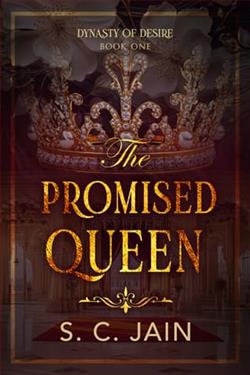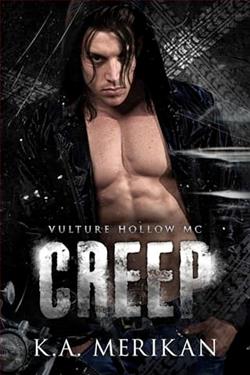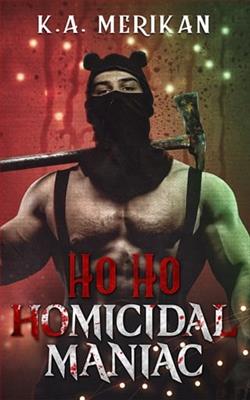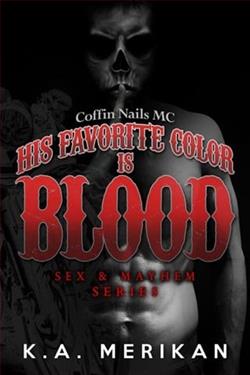Page 169 of The Wild Charge
“Wow.”
“Wow what?”
“I can’t believe you just admitted that, for starters. And two: how bad did it hurt to say it?”
Her scowl darkened. “Fuck you.”
“Anytime, sweetheart. You free for lunch?”
She did the bridge-of-the-nose pinch that meant he was testing her patience. Helovedtesting her patience.
“Pongo–” she started, exasperated. She always said his name like it was a curse. Each time, he remembered the night they’d met, in the dim bar, smoky even though it was illegal to smoke indoors these days, when he’d gotten a drink in her, and her expression had started to thaw, and he’d said,I’m Pongo, by the way.
She’d spluttered, accepted the cocktail napkin he’d slid over to dab her chin, and said,Like the dog?
“Dixon,” a voice called. A deep, carrying male voice that Pongo didn’t recognize…but which could only belong to one person.
Dixon’s partner, the esteemed Detective Morris, strolled into view looking fresh off the set of a cable cop show – the kind trying hard to compete the with the big network numbers, but failing spectacularly. Everything about him was square: his shoulders, his wide hands, his jaw, especially. Pongo supposed he was handsome in a Hallmark Channel sort of way, if someone was into that.
Pongo wasn’t. And he wasn’t, for some reason, into the way Dixon snapped around to look at him automatically, her expression melting into something soft and adoring that was a little bit painful to look at.
Morris braced one of his square hands on the back of Dixon’s chair. “Great job yesterday. The captain’s already talking about recommending us for the next–” Belatedly, he noticed Pongo. “Oh. I didn’t know you had company.”
Pongo beamed at him and kicked his feet back up onto the desk. Offered the detective a little wave, as his square face folded up into something sour and distrustful.
“I don’t,” Dixon said in clear dismissal. “Pon – he was just leaving.”
Pongo didn’t budge. “Hi. I’m Pongo.”
“Christ,” Dixon hissed.
Morris’s brows drew together.
“Like the dog,” Pongo supplied, helpfully. He pointed to his own face, his cheeks and the bridge of his nose. “See? Spots.”
“I see…” He cleared his throat and turned back to Dixon. “Come and find me when you’re done here. I need to speak with Chalmers.” He strode off with a double tap-tap of his fingers on her chair back.
When he was gone, Pongo said, “Honestly, what do you see in that guy?”
In an instant, Dixon’s hackles came back up. She turned to him, frowning.
“Is it the” – he gestured to his jaw – “the whole blockhead thing?” He mimed a square around his head. “That do it for ya?”
Her gaze narrowed. She took a slow breath in and let it out, nostrils flaring. “Pongo,” she said, firmly, and he had the sense she was restraining the words she really wanted to use. “You should go. You shouldn’t be here in the first place.”
He tugged at the front of his benign Mets hoodie. “I’m not flying colors. No one here knows what I am.”
“Leave. Please.”
“Fine, fine.” He stood, made a show of cracking his spine, hands at the small of his back, taking secret delight in the way her gaze skipped to the stripe of trim stomach he’d oh-so-intentionally flashed her with the movement. “If you’re sure…?”
A tight nod.
“Okay. But.” He paused, braced a hand on her desk, and leaned down low, into her face. He watched her pupils expand; watched her throat jump as she swallowed. Her hands tightened on the edge of the desk, and she wanted to roll her chair away, but was too stubborn for that. “Here’s another tip,” he said, dropping his voice to a whisper. “The Russians and Italians you’ve got in lockup? Ask them about Jack Waverly.”
She frowned – this time in true confusion, and not irritation. “Waverly? The movie producer?”
“One and the same, babydoll. Ask them. Have the OC guys tell them Waverly’s about to take a major fall. Offer them some kinda deal, and I betcha they start singing.”















